As the science community’s focus on climate change and adaptation continues to grow, research fellows are playing a pivotal role in driving the innovation needed to build greater resilience in the face of climate change. The University of California, Santa Cruz Center for Coastal Climate Resilience has made a major commitment in the past 2.5 years to support and bring to campus more than 60 Fellows at all levels from early career grad students to senior fellows. Fellows cover programs across campus and include business leaders, indigenous diplomats, graduate students in Coastal Science & Policy and Science Communications programs, and an artist in residence, among others. In a series of perspective pieces we will tell some of the stories of how their work drives innovation locally, nationally, and globally.
Linking environmental pressures and fish size, Sam Ginther
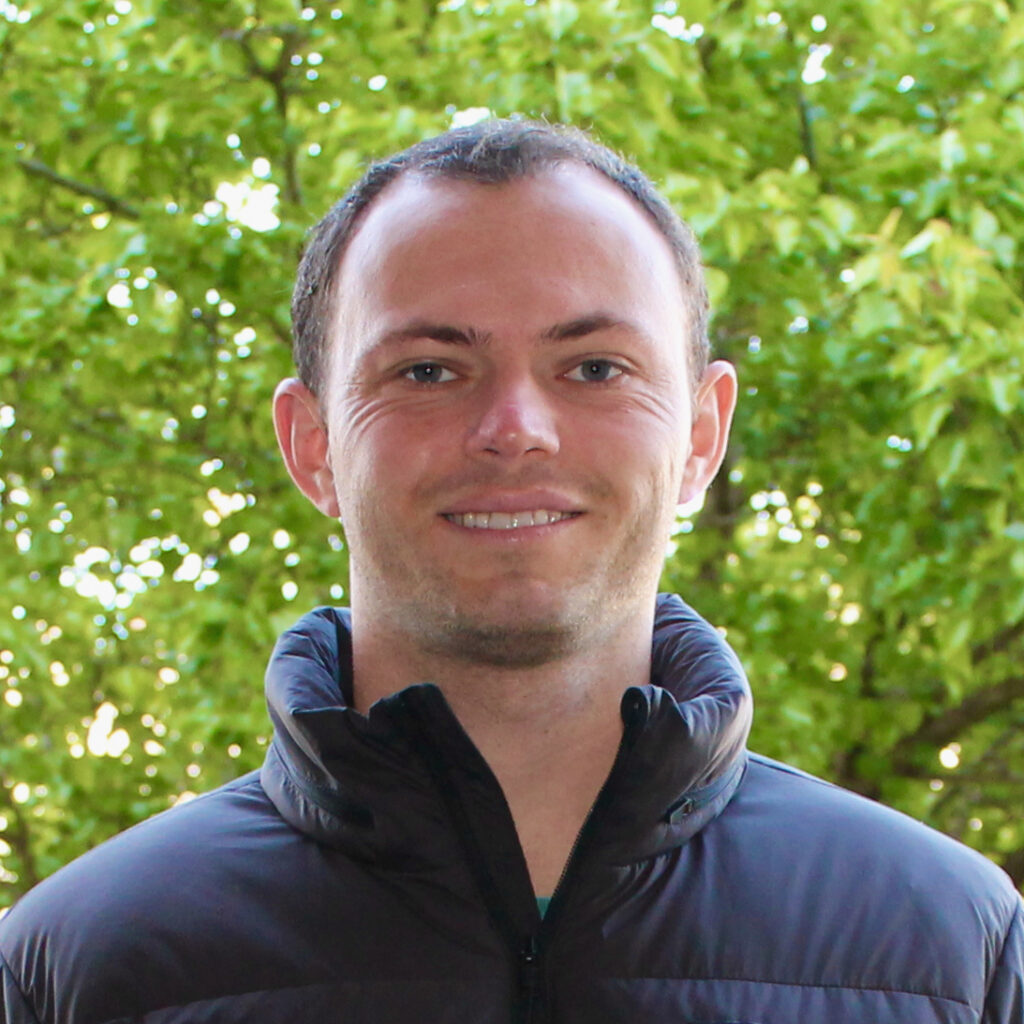
As a 2024 CCCR Fellow, Sam is developing statistical tools to understand how environmental pressures like climate change and fishing influence fish body size. This research has urgent real-world applications as warming oceans lead to earlier maturation and smaller fish sizes, while fishing pressure produces similar trends. Historically, scientists have studied these two stressors separately. Sam’s research brings them together, aiming to identify whether it’s warming, harvesting, or both that are driving these changes in fish populations, and what that means for resilience and recovery.
Sam has been collecting and simulating data to build statistical models that compare the effects of warming and harvesting. In the next phase of his work, he’ll interpret results and apply these methods to California species such as rockfish, salmon, herring, and flatfish, making his research especially timely for marine resource management on the West Coast.
Engaging small fishing communities in climate decisions, Sidney Opiyo
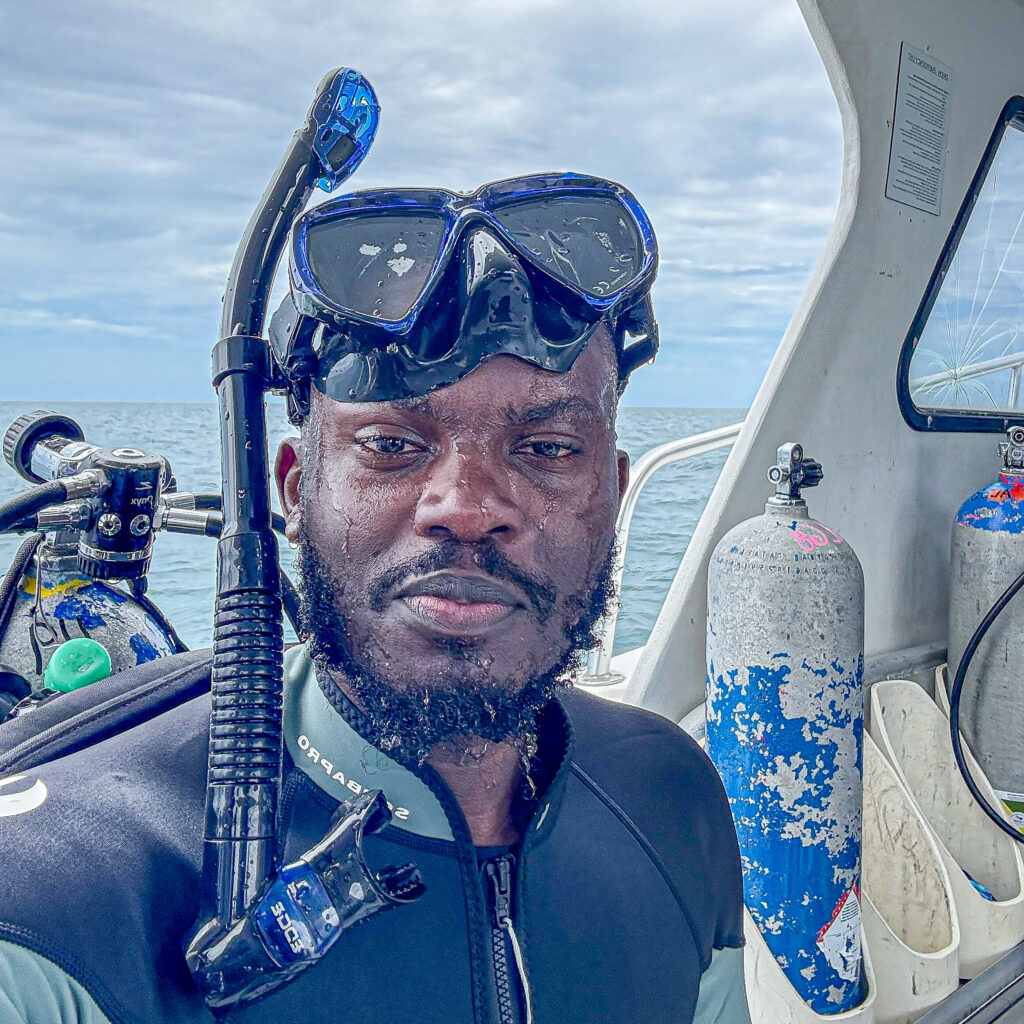
Supported by CCCR, and partnering with WorldFish and Western Indian Ocean Marine Science Association, Sidney looks at the role of community engagement in policy decisions in small fishing communities in Zanzibar. The project explores how connecting with communities on the frontlines of climate change, and using their lived experiences to inform planning and policy, can yield more effective solutions. He is also looking at participatory approaches like photovoice to amplify community voices and make fisheries data more actionable.
Marine ecosystems are particularly sensitive to climate change, and small-scale fishers are often excluded from decision-making. By grounding research in local narratives and offering alternative communication methods, Sidney hopes to strengthen the community’s voice in climate adaptation conversations, while generating better collection methods for fisheries data.
Sidney’s next steps include synthesizing findings into materials for both community and policy audiences, including a policy brief. He plans to return to Zanzibar to continue research through the remainder of 2025. His long-term vision is to ensure that small-scale fisheries management and climate adaptation strategies are grounded in the realities of those most impacted.
Real-time shoreline detection using machine learning, Mona Zhao
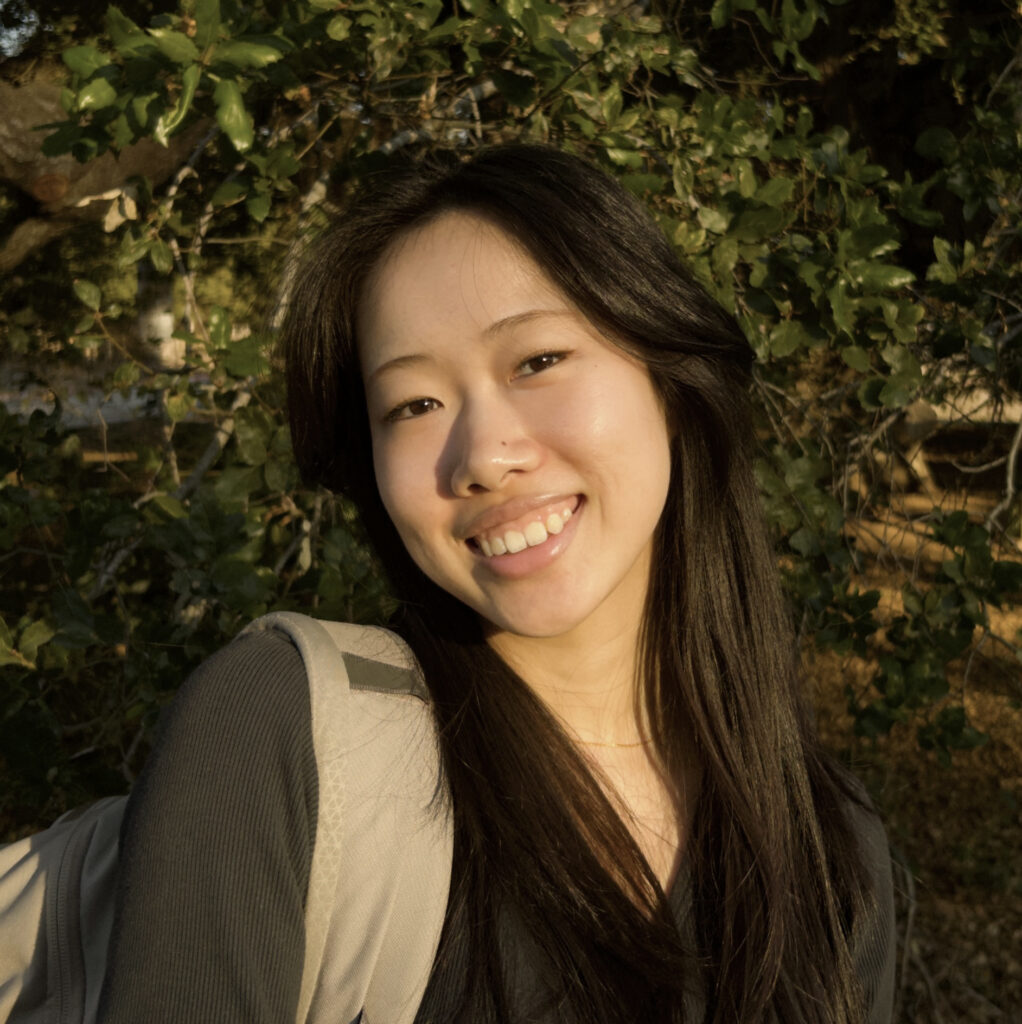
With support from CCCR, Mona is working to improve shoreline monitoring and modeling to track where the water meets the land across varying conditions. Using Twin Lakes and Seabright Beaches as local research sites, Mona is developing a machine learning algorithm and associated application that uses beach webcam footage to detect shoreline changes in real-time.
Traditional shoreline monitoring methods, like satellite, radar, or manual surveys, have long been limited. By using readily available beach webcams for more immediate and continuous monitoring, this work can support more critical research like storm impact analysis, beach management, surf condition forecasting, and model validation. Mona’s research will also contribute an open dataset of labeled shoreline imagery to help others build models that can operate across diverse coastal environments.
Mona is currently refining the algorithm to improve performance across different beaches and weather conditions. She is also building visual applications to make the shoreline data more actionable, such as graphs tracking daily and seasonal movement or reconstructed beach topography after storm events. By July, Mona and her team hope to complete a paper summarizing their results and proposed applications for how shoreline data supports science, planning, and public safety.
Understanding climate resilience in farmworker communities, Sidney Madsen
Sidney Madsen is a Postdoctoral Fellow in Climate Justice and Community Engagement, a position created in partnership with the Community Action Board of Santa Cruz County (CAB) and the Center for Reimagining Leadership at UC Santa Cruz. Having researched grassroots agroecology interventions in Mexico, Guatemala, and Malawi, she is now bringing this work to the Monterey Bay’s agricultural communities.
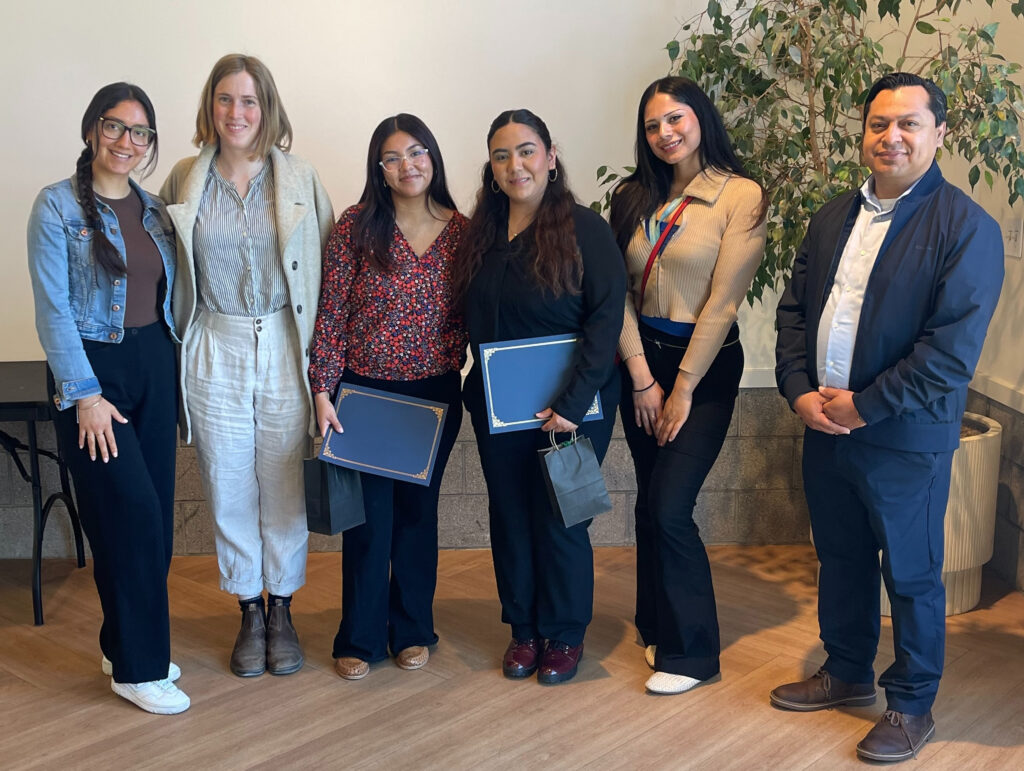 Sidney Madsen (second from left) with interns and CAB staff
Sidney Madsen (second from left) with interns and CAB staffSidney’s research looks at the intersection of climate change, health, and social justice for low-income and farmworker communities in Santa Cruz County, specifically in Pajaro. The work spans three interrelated pieces. The first looks at how climate change affects the health and employment of local farmworkers through interviews and focus groups. The second part observes resident participation in climate planning processes and how this shapes the projects proposed. The third element will co-develop a climate justice curriculum to help Pajaro residents advocate for equitable climate solutions and co-develop community-based projects
Farmworkers and low-income residents are often disproportionately affected by climate change, yet excluded from meaningful participation in adaptation strategies. By embedding with CAB and co-developing both research and tools, Sidney’s work aims to improve community participation and shift climate conversations toward more transformative, justice-centered outcomes.
Sidney is continuing the climate leadership course through the summer, and will then develop materials to help residents build their own climate-related outreach projects. She is also creating a university-community engagement protocol for CAB to help the organization manage future collaborations more strategically and efficiently, ensuring long-term benefit from research partnerships. As part of the project, Sidney mentored three UC Santa Cruz undergraduate interns (pictured above) in their work developing and implementing the course for CAB.






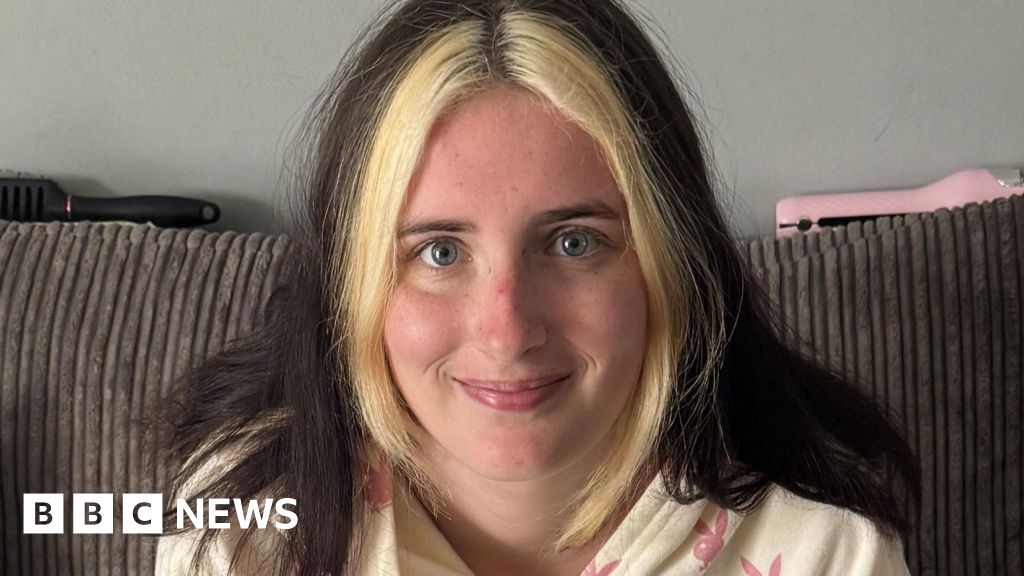

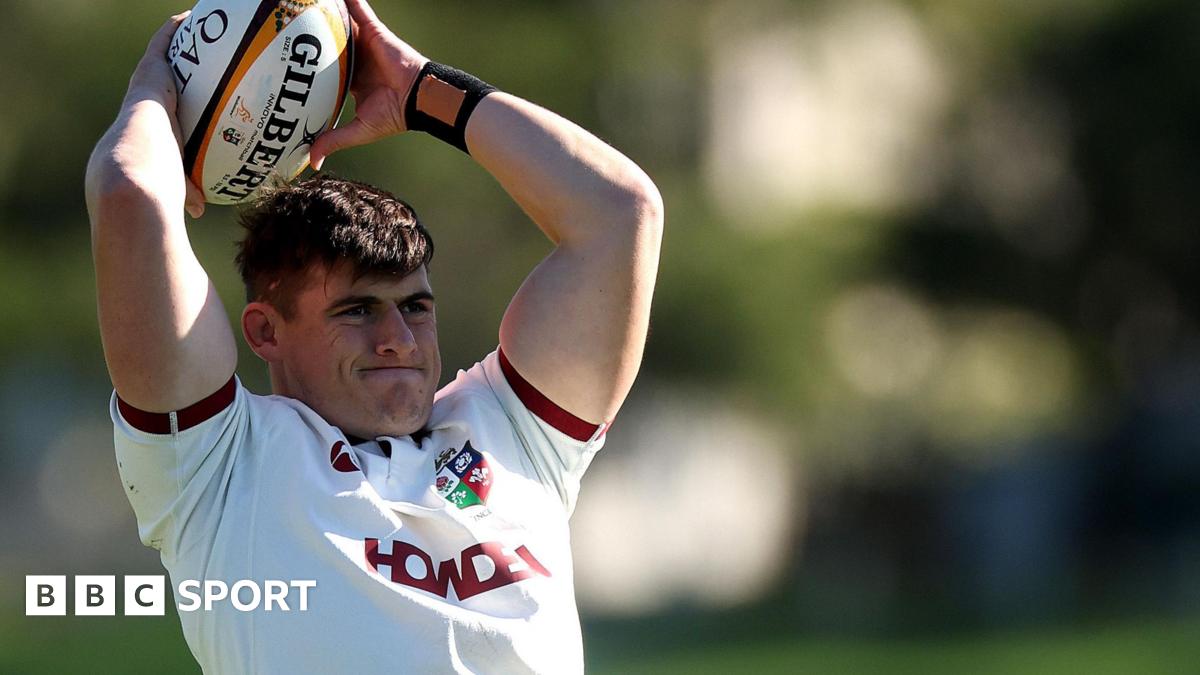
 English (US) ·
English (US) ·